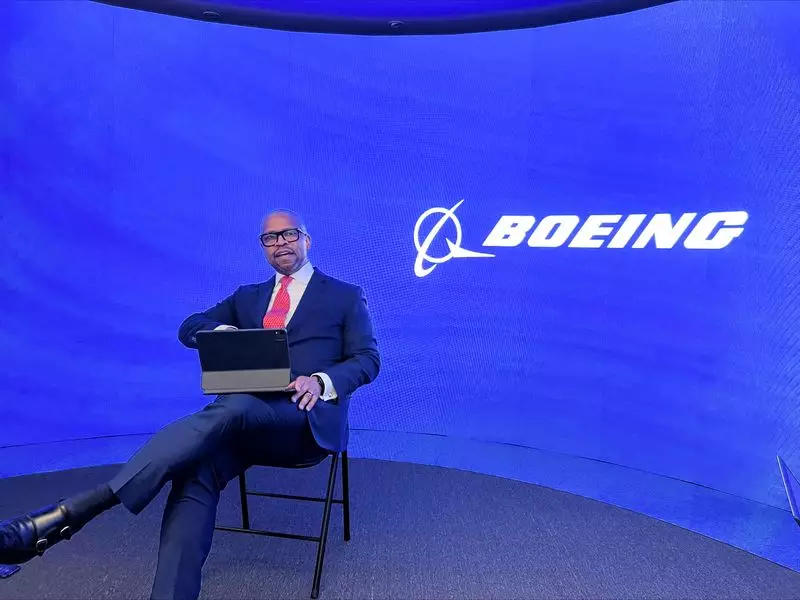In a notable management shake-up, Boeing has announced the immediate departure of Ted Colbert, the head of its troubled defense and space division. This change marks the first significant leadership shift under the new CEO, Kelly Ortberg, who took the helm in August. The role previously held by Colbert will now be temporarily managed by Steve Parker, the unit’s chief operating officer, until a permanent successor is named. In an internal communication, Ortberg conveyed a clear message about the urgency of restoring client trust and meeting expectations—a sentiment that emphasizes the gravity of Boeing’s current predicament.
Boeing’s defense and space sector has been beleaguered by a series of significant setbacks and challenges over the past few years, with recent poor performance drawing the scrutiny and disappointment of both customers and investors. This latest leadership change reflects a broader strategy to revitalize Boeing’s image and operational capabilities, which have suffered amidst financial and operational struggles.
Since 2016, Boeing has grappled with substantial financial repercussions stemming from its Starliner program, which has incurred approximately $1.6 billion in overruns. These missteps reached a critical point when NASA recently announced that the Starliner capsule would be returned to Earth without astronauts. Such incidents highlight not only financial mismanagement but also questions about the company’s operational competence, prompting an urgent need for strategic reevaluation.
Additionally, recent developments have compounded Boeing’s issues; a mid-air emergency involving an Alaska Airlines 737 MAX 9 underscored ongoing concerns about safety and quality assurance, as four critical bolts were discovered to be missing from the aircraft. This incident is one among many that have tarnished the reputation of a company once held in high esteem for its engineering prowess and reliability.
Boeing is currently navigating tumultuous waters, as its space and defense unit continues to report significant losses—over $2 billion in total in both 2022 and 2023, attributed largely to fixed-price contract overruns. These types of contracts, while promising higher profit margins, have placed Boeing in a precarious position in the face of rising costs driven by inflation. As a result, Ortberg’s leadership will need to implement immediate financial recovery strategies to stabilize these troubled divisions.
The urgency is further heightened by the unfortunate circumstance of furloughing thousands of white-collar workers, juxtaposed with the ongoing strikes threatening the operational stability of the company. Boeing’s financial picture has become increasingly bleak, with share prices plummeting 41% in 2023 alone. Such staggering figures signal an impending crisis that could affect the company’s long-term viability and reputation.
As the new leadership takes charge, a focal point of their strategy will be rebuilding stakeholder confidence and ensuring rigorous quality control across all divisions. Parker’s previous experience in leading Boeing’s bomber and fighter programs positions him as a suitable interim leader who understands the complexities and challenges that come with defense contracts. Ortberg’s emphasis on restoring Boeing’s historical reputation for program management will require an aggressive overhaul of existing processes to ensure first-time quality and prevent further operational failures.
Replacing Colbert is just one piece of the puzzle. The company’s future success hinges on its ability to innovate, adapt to market changes, and effectively respond to customer demands. Ortberg’s acknowledgment of immediate investment needs and the recognition of hurdles faced by engineering teams underscores the multifaceted approach required to rectify Boeing’s current stance.
As Boeing embarks on this ambitious path toward recovery and renewal, the magnitude of challenges ahead cannot be understated. The aerospace giant must overcome not only its internal issues but also the external challenges presented by regulatory scrutiny and market competition. Ortberg’s leadership will be pivotal; an era of accountability and high-performance standards must be ushered in to secure Boeing’s position as a leader in the aerospace and defense sectors.
The departure of Ted Colbert may be viewed as a necessary first step in a longer journey of recovery and transformation. For Boeing to reclaim its legacy of excellence, a clear vision and unwavering commitment to quality, innovation, and accountability will be essential. Ultimately, the success of this transition will determine whether Boeing can once again rise to the heights it once enjoyed in the aerospace industry or succumb to the complications of mismanagement that have plagued it in recent years.

